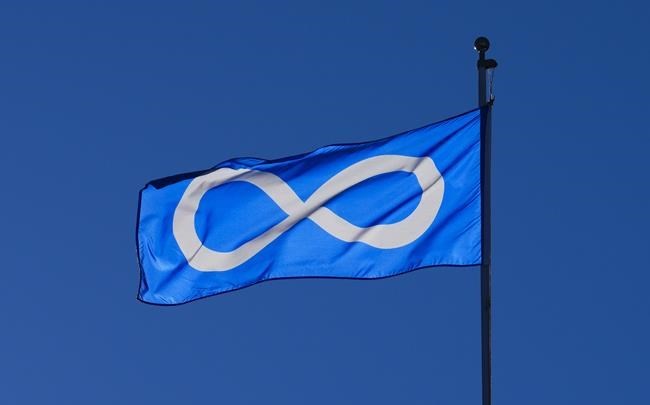EDMONTON — Three Métis groups signed a deal Friday with the federal government that recognizes them as Indigenous governments, putting them on equal constitutional standing with First Nations and opening the door to further negotiations such as compensation for land lost.
"For over 90 years, that has always been the dream — that proper recognition of a Métis government," said Audrey Poitras, president of the Métis Nation of Alberta.
Crown-Indigenous Relations Minister Marc Miller, who also signed the deal with the MĂ©tis Nation of Ontario and MĂ©tis Nation - Saskatchewan, said it would soon be backed up by legislation.
"It affirms an inherent right (to self-government) that is very similar to the inherent right of First Nations," Miller said.Â
The deal builds on a 2019 accord that acknowledged the MĂ©tis right to self-government but stopped short of naming groups that would form those governments. Friday's agreement does just that, said lawyer Jason Madden, who acted for the Alberta group. Â Â
"This agreement says: 'You're a government,'" he said.Â
It gives the groups control over what it calls "core elements" of self-rule. That includes determining who is a MĂ©tis citizen, leadership selection and government operations.Â
It also brings the MĂ©tis groups under federal legislation that gives Indigenous governments control over family and child welfare.
"For many, many years we've been stopping and starting, trying to find a way to take care of our own children," said Poitras. "With the signing of this new agreement, it takes us one step further to really look after our own citizens."Â
Madden said Friday's signing is limited to those elements — for now.
"The agreement allows for supplemental jurisdiction agreements," he said. "(They) would be subsequently negotiated to deal with issues around land, harvesting, other things that may be more controversial."Â
Miller said the next step will be a treaty and land claim for the MĂ©tis.
"This does create the base for those next conversations," he said.Â
Poitras expects the deal will give MĂ©tis a stronger hand in negotiations with the province of Alberta as well.Â
The agreement also opens the door to negotiations on compensation for the notorious MĂ©tis scrip program.Â
"Scrip is a sorry legacy in this country," Poitras said.
In the late 19th century, Métis were given scrip — a type of coupon — in exchange for land they had occupied for generations. The scrip was meant to compensate Métis for extinguishing any claim on those lands.
However, some charge that many MĂ©tis had their names forged on land transfer documents. Others were victimized by speculators who bought up MĂ©tis land for pennies on the dollar. Â
MĂ©tis were often left landless where they used to freely roam.Â
"There is some unfinished business," Miller said. "It is embodied in the very difficult history around the scrip system that was fraudulent."
The three agreements signed Friday aren't the first to recognize MĂ©tis organizations as governments. The Manitoba MĂ©tis Federation signed a similar deal in 2019.
Negotiations are ongoing with MĂ©tis groups in the Northwest Territories and British Columbia. Miller said talks with the Northwest Territory MĂ©tis Nation are well advanced. Â
The deal doesn't affect the legal rights of Alberta's eight MĂ©tis Settlements. Separate from the MĂ©tis Nation of Alberta and recognized under provincial law, the settlements are the only lands in Canada held collectively by MĂ©tis.Â
Dave Lamouche, president of the MĂ©tis Settlements General Council, said his group had no immediate comment on the deal signed Friday.
"It's too early to tell," he said. "We're reviewing the details with our lawyers."
Miller said the government will talk with Lamouche.
"We always have an open door to speak to them about their assertion of collective rights."
But on Friday, three MĂ©tis nation governments were taking a victory lap.Â
"I think of all the past leaders and forefathers who stood strong on who we are," Poitras said. "We are a MĂ©tis nation.
"It's been amazing over the past five or six years, going forward, actually seeing things happen."
This report by The Canadian Press was first published Feb. 24, 2023.
Bob Weber, The Canadian Press
Note to readers: This is a corrected story. A previous version referenced the MĂ©tis Nation of Saskatchewan, the MĂ©tis Nation of Manitoba and the MĂ©tis Nation of the Northwest Territories. The organizations are, in fact, respecitvely called MĂ©tis Nation - Saskatchewan, the Manitoba MĂ©tis Federation and Northwest Territory MĂ©tis Nation. This version also corrects language to reflect the MĂ©tis nation's self-determined position on its governance.




